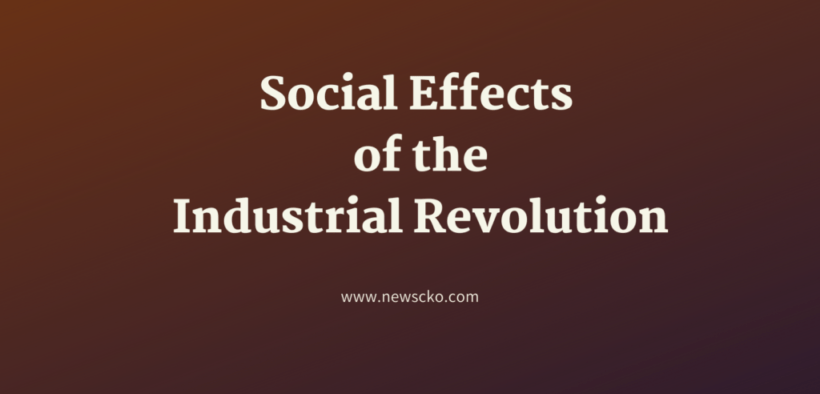What Are the Social Effects of the Industrial Revolution?
Share

The industrial revolution is about the rise of machines, increased human productivity, and thus its great benefits. It has a broad social impact. There is a considerable debate about when it started and ended. Most agree that it began in the late 18th century and ended in the early 20th century. We are now living in the post-industrial revolution age. This article investigates social effects of the industrial revolution.
Rise of factories, mines, and a child labor
One of the significant changes that occurred due to the industrial revolution was a shift from doing most work at home to working in factories. This could be a small cottage industry or a large factory. Regretfully, in the early days of the industrial revolution, working conditions were harsh in these factories.
This also led to increased mining of raw materials, which definitely had a grave consequence for the environment.
In the early times, people used to work for 14 hours or even more and six times a week, and child labor was common.
However, it also led to the expansion of the middle class, the formation of labor laws, the importance of health, and much more.
Slowly, labor unions emerged, asking for better pays and working hours. Thus, it would be correct to say that the modern 40 hours working week resulted from the Industrial Revolution. Although, since the industrial age is over, this view is changing now, as various countries are experimenting with even fewer working hours.
Social effects of the industrial revolution
The industrial revolution had many positive and negative social impacts. It led to a considerable increase in mid-income society, increased access to healthcare, and increased human lifespan. In fact, both extreme poverty and young age mortality have declined since the onset of the industrial age.
However, these changes also led to the global population boom. It means that extreme poverty again started rising by the end of the 19th century and early 20th century. Nevertheless, the industrial revolution benefits ultimately helped reduce extreme poverty from the mid of 20th century onwards.
The industrial revolution has a direct link with the healthcare revolution, too. For example, it was during this age that researchers discovered most pathogens. It is during this age they came up with vaccines. Understanding of diseases that developed during this period laid the foundation of many discoveries in medical science in the mid-20th century and onwards.
Another significant change brought by the industrial revolution was social equity. It was during this age that slavery was abolished. Finally, people of all racial backgrounds and ethnicities started gaining equal rights. Although it is still an ongoing struggle, most of these ideas originated in the industrial age.
Any discussion on the industrial revolution would be incomplete without considering its impact on gender equality. This age marked a significant change for women. it means that women increasingly started entering the global working force and competing with men. Women also began demanding reforms like the right to vote and other equal rights.
To conclude, the industrial revolution has a significant social impact on humanity. Subsequently, it appears that the information age would have an even more powerful social impact.








